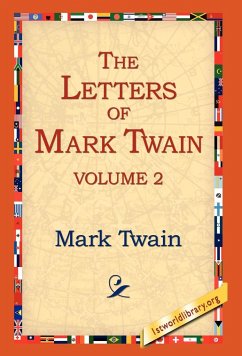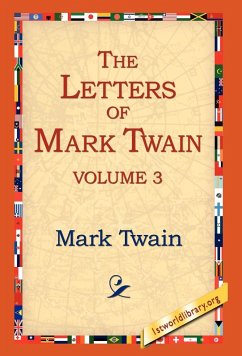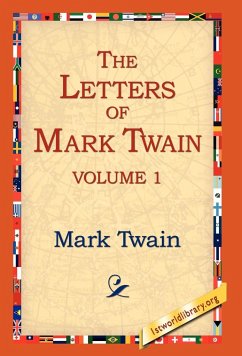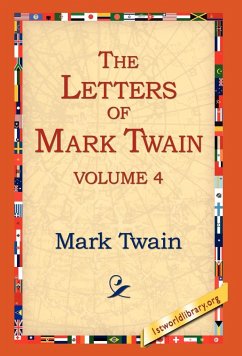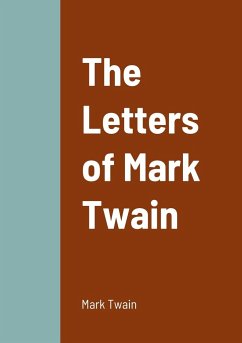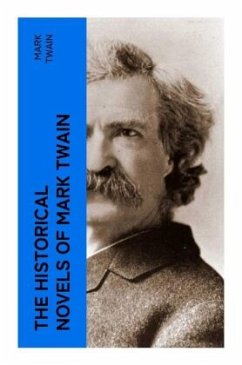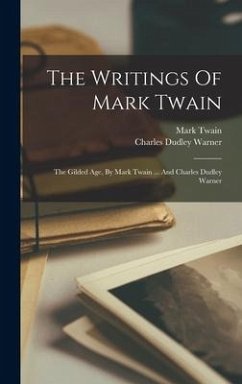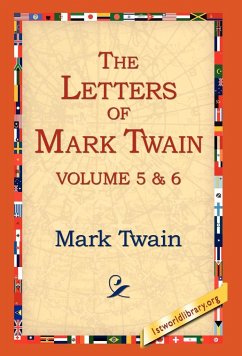
The Letters of Mark Twain Vol.5 & 6
Versandkostenfrei!
Versandfertig in über 4 Wochen
26,99 €
inkl. MwSt.
Weitere Ausgaben:

PAYBACK Punkte
13 °P sammeln!
An editorial in the Louisville Courier-Journal, early in 1901, said: "A remarkable transformation, or rather a development, has taken place in Mark Twain. The genial humorist of the earlier day is now a reformer of the vigorous kind, a sort of knight errant who does not hesitate to break a lance with either Church or State if he thinks them interposing on that broad highway over which he believes not a part but the whole of mankind has the privilege of passing in the onward march of the ages." Mark Twain had begun "breaking the lance" very soon after his return from Europe. He did not believe ...
An editorial in the Louisville Courier-Journal, early in 1901, said: "A remarkable transformation, or rather a development, has taken place in Mark Twain. The genial humorist of the earlier day is now a reformer of the vigorous kind, a sort of knight errant who does not hesitate to break a lance with either Church or State if he thinks them interposing on that broad highway over which he believes not a part but the whole of mankind has the privilege of passing in the onward march of the ages." Mark Twain had begun "breaking the lance" very soon after his return from Europe. He did not believe that he could reform the world, but at least he need not withhold his protest against those things which stirred his wrath. He began by causing the arrest of a cabman who had not only overcharged but insulted him; he continued by writing openly against the American policy in the Philippines, the missionary propaganda which had resulted in the Chinese uprising and massacre, and against Tammany politics. Not all of his efforts were in the line of reform; he had become a sort of general spokesman which the public flocked to hear, whatever the subject. On the occasion of a Lincoln Birthday service at Carnegie Hall he was chosen to preside, and he was obliged to attend more dinners than were good for his health. His letters of this period were mainly written to his old friend Twichell, in Hartford. Howells, who lived in New York, he saw with considerable frequency.




